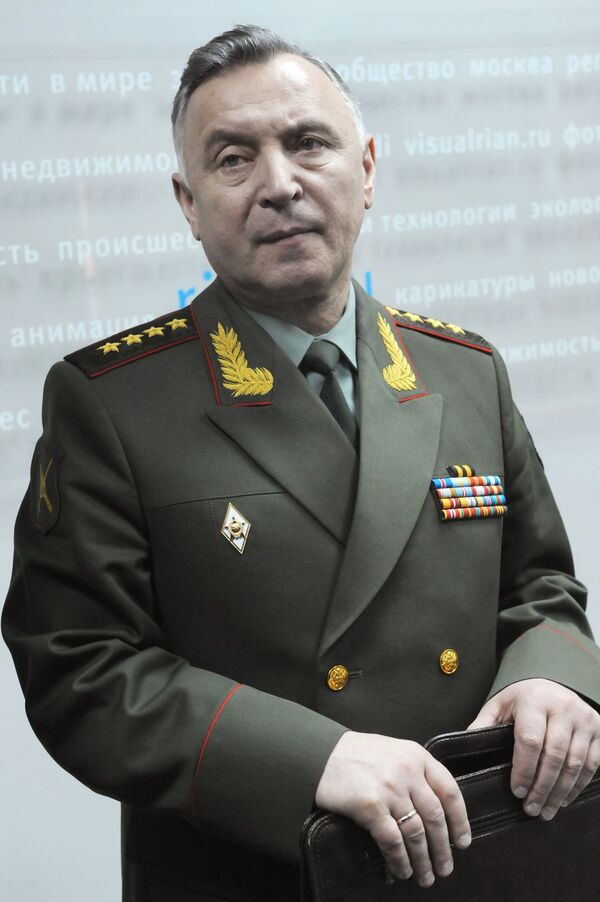The chief of Russia's Armed Forces General Staff on Tuesday denied media rumors that Russia had deployed short-range nuclear missiles near its borders with NATO allies.
The Wall Street Journal said in an article published on Tuesday that the United States believes Russia moved "short-range tactical nuclear warheads to facilities near NATO allies as recently as this spring."
"We have not deployed any missiles in the Kaliningrad region," Gen. Nikolai Makarov said, commenting on the report.
Moscow has long opposed the deployment of NATO missile-defense facilities near its borders, claiming they would be a security threat and destroy the strategic balance of forces in Europe.
The United States scrapped earlier plans last September for an antimissile defense system in the Czech Republic and Poland. Moscow welcomed the move, and President Dmitry Medvedev said later that Russia would drop plans to deploy Iskander-M tactical missiles in its Kaliningrad Region, which borders NATO members Poland and Lithuania.
The Iskander-M system (NATO reporting name SS-26 Stone) is equipped with two solid-propellant single-stage 9M723K1 guided missiles with "quasi-ballistic" capability. The missiles have a range of 400 km (250 miles) and can reportedly carry conventional and nuclear warheads.
However, Washington has not given up on its European missile shield initiative. In May, the United States opened a temporary military base in northern Poland, just 80 km (50 miles) from the border of Russia's Baltic exclave of Kaliningrad, in accordance with an agreement negotiated under former President George Bush in 2008 - a move which rekindled criticism from Russia.
The Wall Street Journal article coincides with the ongoing battle in the U.S. Congress over the ratification of the new Strategic Arms Reduction Treaty (START) with Russia. It could fuel Republican Party opposition to the new START treaty and hamper President Barack Obama's efforts to get the document ratified.
According to the piece, "Republican critics in the Senate say it was a mistake for President Barack Obama to agree to the START treaty with Russia...without dealing with outstanding questions about Moscow's tactical nuclear weapons," which the treaty does not address.
MOSCOW, November 30 (RIA Novosti)




